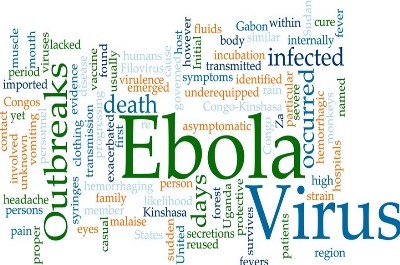Spectre of Ebola Protectionism
A new kind of protectionism is haunting the world: the spectre of Ebola protectionism. As the Ebola virus disease ravages the societies of the Mano River Union (MRU) states of Guinea, Liberia and Sierra Leone, there are increasing calls from conservative politicians, right-wing groups, and sections of the media to prevent people from MRU states from interacting with the rest of the world.
The protectionist measures range from exit and entry controls, such as temperature checks and mandatory monitoring and quarantining of travellers from MRU states, to flight bans and denial of visas to holders of MRU passports.
The virus poses less of a threat to rich countries with sound public health systems than poor West African countries that have extensive links with the MRU states. Exit and non-intrusive entry controls, not flight bans and visa restrictions that Australia and Canada have imposed, may be enough to manage the few cases that are likely to pop up in rich countries.
It is amazing that a country like Australia that is more than 15,000 kilometres away from West Africa, and with no confirmed case of Ebola, is the first Western state to adopt mean-spirited protectionist policies. North Korea, a reclusive country in the far corner of Asia, is also fuelling the global panic by announcing that all foreign visitors regardless of travel history will be quarantined for 21 days.
As health experts have repeatedly affirmed, the Ebola virus is not easily transmitted if a carrier is not symptomatic. Besides, it is health workers, home caregivers, and those engaged in customary practices of washing dead bodies that are mostly at risk. Indeed, more than half of the cases of infection have been linked to unsafe burial practices. It is hard to imagine a major Ebola outbreak in Western societies where such practices do not exist and communal ways of living are rare.
If the voices of Ebola protectionism become dominant in global public policy, the effect on the MRU states, diaspora citizens of such states, and Africa in general, will be catastrophic. It will gravely undermine the fight to tackle the disease at its source, make a mockery of the multilateral system of cooperation and international development policy, and ultimately transform the Ebola epidemic into a pandemic.
When living beings encounter external threats, they tend instinctively to withdraw into a mode of self-preservation. Our house cat, Maki, always relies on her own judgement, not ours, to protect herself from unknown visitors and disturbances. However, humans do not always act on instincts alone. They are capable of building institutions to constrain the impulse for self-preservation that may make everybody worse off in the long-run.
Economic protectionism in the 1930s had a devastating effect on world trade and output. It disadvantaged all countries, rich as well as poor. A new multilateral system was later crafted through the Bretton Woods Institutions of the IMF and World Bank and the United Nations network of organizations, in which countries would cooperate to solve common economic, social and security problems. When the spectre of protectionism threatened again to engulf the world in 2008, following the US financial crisis, a new kind of multilateralism, which now included the active participation of emerging economies, saved the day.
Ebola protectionism is different from, and likely to be more pernicious than, protectionism that is driven by economic dynamics. In addition to fuelling capital flight and undermining trade, investments, tourism and government revenues in the MRU states, Ebola protectionism affects human bodily contact, social trust, and free movement of people, and may reawaken or feed xenophobic and racist attitudes and practices.
Already in some Western countries, there are cases of children or students who are Ebola-free being denied schooling or university education because they have lived in MRU states or their parents may have originated from, or travelled to, such states; Africans from Ebola- and non-Ebola infected countries are being disinvited from external professional events; landlords are refusing to rent apartments to people from MRU states; and diaspora Africans, especially from the MRU states, are being harassed by neighbours in some countries. Time magazine reported on 28 October that two children from Senegal, which has had only one Ebola confirmed case and has been declared free of the disease by the WHO, were beaten up in New York City by classmates yelling “Ebola”.
Two key points in President Obama’s defence of a vigorous multilateral response to the Ebola crisis need emphasizing: protectionism will severely compromise the movement of essential health volunteers, medicines and facilities to the affected region and make it harder to defeat the virus at its source; and there can be no full protection in any country against the disease if it becomes a pandemic.
Advocates of Ebola protectionism may believe that the rest of the world will not bat an eyelid if it loses the MRU states’ 21 million people with a GDP of only USD12 billion, which is less than 2 percent of the West African region’s GDP. However, if the virus is not eradicated in the MRU states, it is likely to spread to neighbouring countries with bigger populations and large non-African developing countries that cannot easily be isolated. It may then ultimately find its way in the rich world in much larger numbers than the few cases that are currently causing panic.
By the standards of low-income countries, the MRU states were doing relatively well in growing their economies and rebuilding chronically-neglected roads and electrical power systems. Progress was being made in domestic revenue generation, even if the optimization of revenues, especially from natural resources, remained a huge challenge.
Unfortunately, the MRU states woefully failed to pay sufficient attention to the software of development—building institutions that can ensure citizens’ trust in government policies. Governments are hardly present in the lives of most people for the most fundamental things, such as jobs, social services, and social security. People invariably fend for themselves and have learned to not depend on, or trust, the word of government. Even though most people are aware of the danger of Ebola, they continue to ignore government instructions about how to handle the sick and the dead, especially when the instructions are not fully backed by provision of adequate health facilities and resources. In a sense, the Ebola crisis has helped to underscore the point that rampant informal coping strategies are an index of underdevelopment that disconnects citizens from states.
State failure in the MRU countries was compounded by health policy failure at the multilateral level during the early period of the crisis when the virus could have been snuffed out at its epicentre in the forest region where the three countries meet–Gueckedou in Guinea, Lofa in Liberia and Kailahun in Sierra Leone. Now that the virus has spread massively to large towns and cities, combating it through contact-tracing is like looking for the proverbial needle in a haystack.
What accounts for the tardy multilateral response? According to The New York Times, budget cuts at the WHO resulted in the dissolution of the organization’s epidemic and pandemic response department, and large scale retrenchment at its Africa office of staff that were skilled in containing viral epidemics. Surely, the leaders of the MRU states initially showed incredible sluggishness and poor vision in responding to the crisis. However, their multilateral partners also failed to provide sound technical advice on how to combat the disease. The significance of the crisis was downplayed even when the non-governmental emergency response agency, Médicins San Frontières, was warning of a health catastrophe as early as June. The surge in international assistance in recent weeks, especially from such countries as the US, Britain, China, Cuba and France may hopefully help to stem the tide.
To conclude, if Ebola protectionism takes root in the public policies of rich countries and millions of lives are lost to the disease, as some experts predict, the MRU states may be condemned to a wasteland of permanent poverty and instability. It may confirm Robert Kaplan’s prophecy in the 1990s of The Coming Anarchy, and render untenable international development assistance, which is already facing strong criticism from sections of the policy and research community for its alleged failure to deliver results. Research suggests that aid is only effective when it is combined with efforts at domestic revenue mobilization and recipients improve their competitiveness in global trade and attracting investments. Ebola protectionism will undermine such efforts and make it harder to optimize key components of development policy.
By Yusuf Bangura
Stay with Sierra Express Media, for your trusted place in news!
© 2014, https:. All rights reserved.






